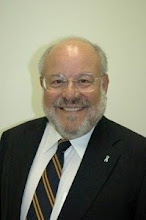Storming out of a press conference last week when pressed on his caravan going through stop signs and speeding, documented by a TV crew, was not smart. After de Blasio refused to answer reporters’ questions and rushed for the door, journalists called out challenges about the new mayor’s promised “transparency.”
Thus the New York Daily News story began: “Mayor de Blasio blew off tough questions Friday about as fast as he blew past the speed limit.” The caption on the accompanying photo: “Mayor de Blasio didn’t answer questions at a press conference regarding speeding revelations.”
A week before, de Blasio was
refusing to talk about a call he made to a high-ranking New York Police
Department official after a political ally was arrested on outstanding warrants
after an alleged traffic infraction. “Mayor Won’t Discuss Call,” was the Newsday’s headline.
De Blasio has
called himself a “very progressive guy with very progressive
goals;” indeed commentators have been comparing him to Mayor Fiorello LaGuardia.
The central theme of the de Blasio campaign was the “tale
of two cities”—how New York City has increasingly become a town where only the
wealthy can afford to live. He has committed to change that.
As a result, like the reform-minded LaGuardia, he will be
condemned by conservative forces, including those in the press. That has already
begun. The Economist magazine last
week attacked how “New York’s new mayor, Bill de Blasio, a union-backed
Democrat, wants to hobble charters,” referring to charter schools. A caption on
a photo accompanying this story: “Down with good schools, says New York’s
mayor.” The article’s headline: “Killing the golden goose.”
De Blasio’s
planned efforts to build back public education in New York City, greatly expand
affordable housing and similar initiatives will meet resistance—and press
criticism. (LaGuardia ran into a lot of this.)
How should de Blasio best handle this?
The best model would be another former New
York City Mayor, Ed Koch.
”He was the most open-to-the-press mayor that
New York City has ever had,” Arthur Browne, a reporter for the New York Daily News stated on the death
of Koch at 88 last year. Browne recalled how Koch conducted no-holds-barred
question and answer sessions with the press daily.
And Koch could
be feisty—in fact most of the time he was, to great advantage.
I recall when Koch
was running for New York State governor in 1982. I was co-anchoring the nightly
news on WSNL-TV on Long Island and he came to be interviewed. I pressed him on
his being on what was then largely Republican turf seeking votes. “I’m here to
rescue you!” he shot back instantly, with a big smile.
Whether about
traffic or police matters or substantive political issues involving his visions
for changing the city, that’s how de Blasio needs to deal with the press. He should engage with the media constantly,
answering every question thrown at him, coming back with honesty, strength and,
when the occasion provides, humor.
Being
thin-skinned, a progressive press-hostile Nixonian, will not help de Blasio’s
cause.
De Blasio knows
how to shovel snow from in front of his house in Brooklyn and making it into a
media event. That’s easy. Keeping his cool, using humor, keeping his eyes on
the prize of a better city when caught in inevitable conflicts with media,
that’s harder—and most necessary if the new mayor is to succeed.


No comments:
Post a Comment